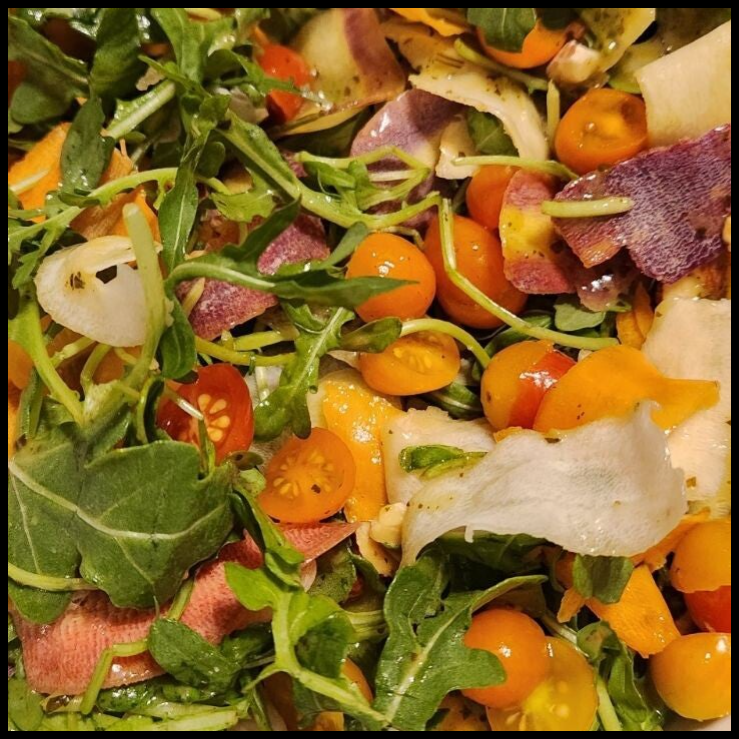
Everything that lives, consumes some other thing. That includes me, my dog and your favorite houseplant. If images of a lion sinking his teeth into the rear of an antelope are flooding your mind (+/- the hyper nasal lamentations of a white-haired British gentleman with Received Pronunciation), you are not so different from me. Prey meeting its match makes most people uncomfortable but shouldn’t. From the beasts that sustained our caveman ancestors to those that are caught and eaten by what remains of apex predators out there, each animal began its existence under the light of our sun. The egg was laid in a location chosen with care. A nest had to be built. A mammalian mother cleaned her offspring from the remainders of the amnion without regard to her pains of labor. Preceding all of this, a male had to master the balancing act between being the loudest, brightest, most impressive and escaping detection by its predators long enough to pass on his genes. Sensory organs—engineered so gloriously that their design is not only universal but remains essentially unchanged—record echoes of the planet’s heartbeat in its winds and currents and, further, create the pleasure-pain dichotomy that brings about the flux of everything that lives. Biological and behavioral realities that we can take for granted because they were designed by the Creator. Ponderance of man’s relative status among the Creation is irrelevant in this discussion for it misses a plain, perhaps uncomfortable, truth: He alone can create and does so as he sees fit. Beyond even our impotence, out there, we can take from nature in blissful ignorance of all that work that goes into our food; however, it’s been a minute since we’ve had to fend out there and we have since built factories where animals are grown. And we have certainly grown an impressive number of chickens, pigs, cows, snails, arthropods, and fish.
God bestowed upon us the stewardship over the natural world that is our shared home. The role of a Steward, contrasted with that of a King, was beautifully illustrated by the Lord of The Rings: Denethor was a prideful yet ultimately impotent zealot who could not, despite his best and misguided efforts, protect his subjects against the threats ever looming from Mordor. Compare this with Aragorn whose rightful ascension to the throne made whole the realms of men and restored what had been missing under the impostor’s rule.
As stewards over the animals we raise for food, we have forgotten the inherent limitations of our position. With the advent of factory farming in the 1920s, we have progressively twisted our responsibility over these creatures by interfering and essentially suspending the natural processes of life. From the moment of conception, animals enter an unnatural, undignified path that progresses toward an indifferent death. Sure, out there, from earthworm to antelope, the threat of death by a predator is likely the only guarantee given to critters as well. If nature progresses as intended, however, an animal will live to reach maturity in accordance with their species lifecycle, rather than an accelerated timeline, brought about by barbaric stuffing and industrial practices, that matches the meat industry’s bottom line. However numbered their days are out there, animals spend them under the light of the sun—exposed to the elements that have always existed in the world into which they were placed by Godly authority. The careful adaptations of their physiology to the environment play out as intended; through this, life at its most basic, is given meaning and consequence.
An attempt to equate the experience of animals in factory farms to that of prey out there, based on the reasoning that both conclude in their death when they are eaten, is ridiculous. If you kept reading up to this point while waiting for me to invoke the double standard you were able to spot from a mile away, I’d like to reassure you: people eat animal products every day without feeling indifference or resentment for what’s on their plate. The animal industrial complex has done the work to distract us from their practices and they have done the work well. The realities of modern, let alone urban life obviously make it impossible for individuals to raise, house and certainly slaughter animals for their own consumption. A fortunate monopoly for the meat industry who wagered the convenience and abundance of their products would be sufficient for the rest of us to quietly forfeit any remaining sense of collective responsibility as stewards of creation to them.
I will never contend that those who eat meat or dairy products do “wrong”. The anticipation of vegans or vegetarians passing off judgement is something the meat industry is counting on: by exaggerating stereotypes and purposely confounding dietary preference with some deep underlying ideological difference between their customers and those who leave animals off their plate, they can divide us and continue their conquest of the natural world. I opened this post with the observation that every living thing depends on the consumption of some other living thing; this simple truth is one that I find many vegans (from influencers to those I know in real life) attempt to negate—either consciously or unconsciously, or even deny. I am woman enough to accept it and continue to boycott participation in the exploitation of animals as much as I can; I have faith that the biological inevitability of needing to feed, informed by an understanding of our role as stewards of creation, unites vegans and omnivores beyond dietary fads and virtue signaling and will, one day, evict the animal industrial complex from its rule. When a shared understanding of mankind as stewards of creation, rather than the overlords who corrupt and exploit it for profit, becomes the principle that informs the farming and raising of animals, I might just share a Schnitzel with you.
Add comment
Comments
Will you be my wife